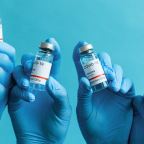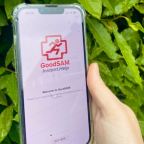
Why are COVID-19 Self-Tests Crucial for Pandemic Control?
COVID-19 self-tests, such as lateral flow tests, have emerged as a vital tool in the fight against the pandemic. These tests provide a convenient and rapid way for individuals to determine their COVID-19 status. With the ability to self-administer these tests at home or in other non-clinical settings, they offer a first line of defence in early detection, enabling people to take prompt action should they test positive. This reduces the risk of virus transmission by encouraging isolation and informing safer decision-making regarding social interactions.
The deployment of self-tests has had a significant impact on how healthcare systems manage and respond to the spread of COVID-19. By allowing a greater number of the population to get tested frequently and easily, these tests alleviate the strain on healthcare providers, preserve medical resources, and support public health measures. Rapid self-testing kits, including lateral FlowFlex tests, allow for timely information, which is paramount in controlling outbreaks and understanding the evolving dynamics of the pandemic.
Key Takeaways
- Rapid self-tests facilitate early detection of COVID-19.
- They help to minimise the spread by enabling immediate self-isolation.
- Self-testing alleviates the burden on healthcare systems.
Role of Self-Tests in Early Detection
Self-tests have become fundamental in the early detection of COVID-19, offering a fast and accessible way to determine infection status.
Asymptomatic Identification
You might carry the virus without showing any symptoms, which makes self-tests a crucial tool for asymptomatic identification. These convenient tests can uncover SARS-CoV-2 infections in individuals who may unwittingly transmit the virus, thus playing a significant role in curbing silent spread within communities. The widespread availability and simplicity of these tests encourage more people to participate in regular testing, enhancing community-wide vigilance. Furthermore, identifying asymptomatic cases assists health authorities in better understanding the virus's spread and effectiveness of control measures.
Reducing Spread Through Timely Isolation
By facilitating prompt detection of COVID-19, self-tests enable you to take immediate action. Should you test positive, you can swiftly self-isolate, reducing the risk of further transmission. Timely isolation initiated by self-tests is especially critical in settings where social distancing is challenging, such as households and workplaces.
Impact on Healthcare Systems
COVID-19 self-tests are integral to easing pressures on healthcare systems and ensuring that medical care can continue effectively during the pandemic.
Alleviating Hospital Burdens
Your use of COVID-19 self-tests plays a critical role in reducing the number of unnecessary hospital visits. This allows hospitals to focus resources on patients who require urgent care. By identifying positive cases early, you help minimise large outbreaks, which, in turn, prevents hospital systems from becoming overwhelmed. It’s a fact that coherent strategies for self-testing can potentially decrease hospital admissions, as seen in the COVID-19: Impact of the pandemic on healthcare delivery. Additionally, these tests provide a more efficient way to screen healthcare workers, ensuring a safer environment for both patients and staff. The decentralization of testing through self-tests also aids in the allocation of resources, enabling healthcare systems to better manage supplies like personal protective equipment and medical devices.
Supporting Continuity of Care
Self-testing ensures that non-COVID-19 related treatments and appointments are less likely to be cancelled or postponed. By managing your tests at home, healthcare providers can maintain regular services and keep elective surgeries on schedule. The availability of self-testing has been pivotal in separating potential COVID-19 cases from the general patient population, which supports the continuity of care for non-infected individuals in need of healthcare services.
Conclusion
As we navigate through the pandemic, it is imperative to recognize the value of these tests as part of a comprehensive approach to health and safety. COVID-19 self-tests have become integral in your efforts to manage the pandemic effectively. By enabling quick detection of SARS-CoV-2, these tests help you to make informed decisions about your health and the health of those around you. The ease of access and use encourages wider participation in testing, contributing to the early identification of infections. Additionally, self-testing supports the healthcare system by alleviating the burden on testing facilities and permits a swift response to potential outbreaks. It's essential to integrate self-testing into your comprehensive strategy for pandemic control alongside vaccination and adherence to public health measures.











